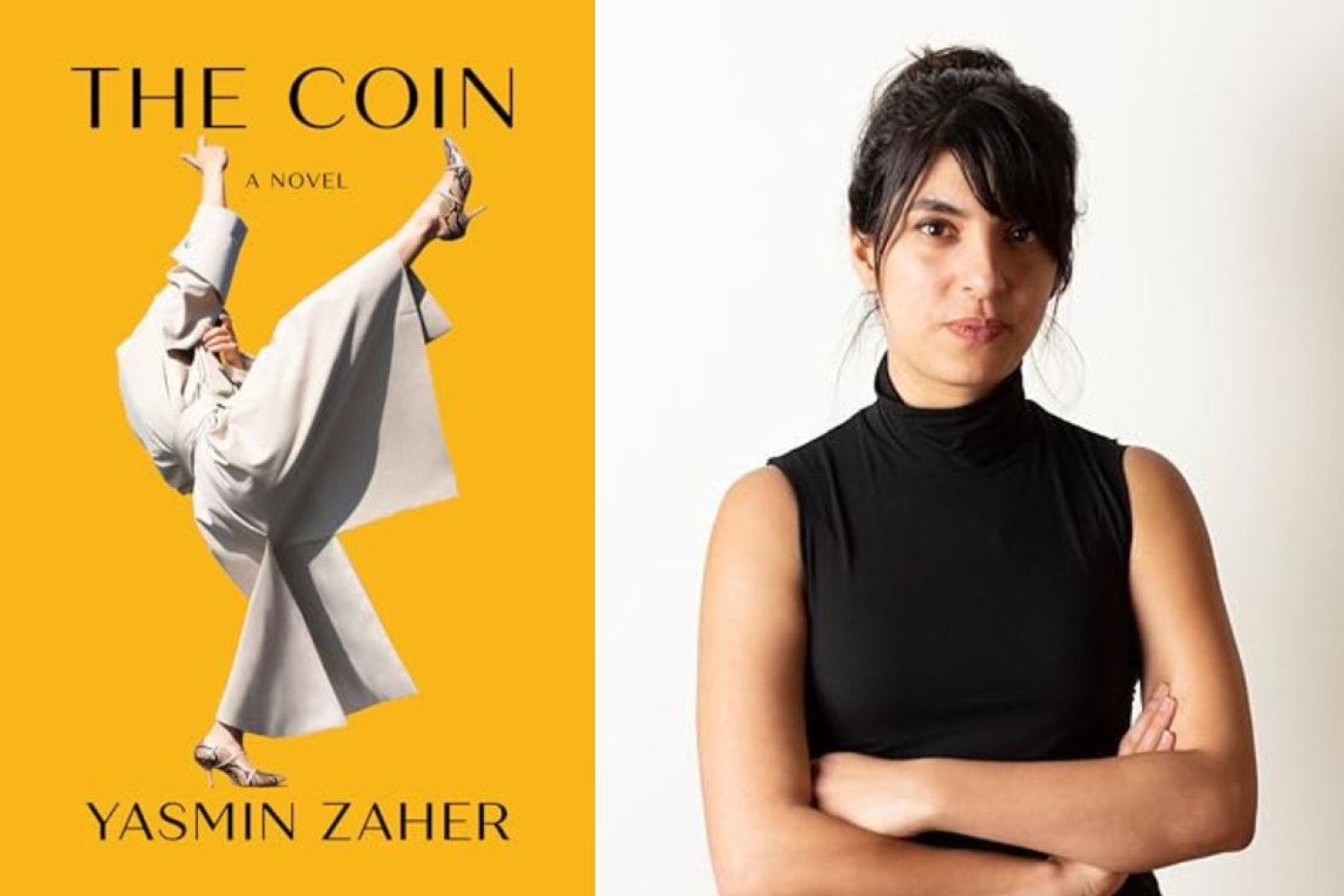

In her debut novel The Coin, Yasmin Zaher introduces readers to a unique protagonist who is both a school teacher and a fashionista, challenging traditional stereotypes. We had the opportunity to sit down with Yasmin Zaher to discuss the inspiration behind her unique protagonist, the role of fashion as a form of empowerment, and the ways her Palestinian heritage influences her storytelling.
Crafting a Unique Protagonist
The nameless protagonist is a school teacher, but she is also a fashionista, which refrains from the stereotype of a teacher being simple. Zaher wanted to give her character power and authority, making the school scenes particularly interesting for her to write. She elaborates, "I liked seeing her in a controlling environment where she could influence her students, particularly in their fashion choices. She tells them that because the world is racist, if you're Black, you have to dress better because then people will take you more seriously." Fashion plays a significant role in Zaher's narrative, both as a form of empowerment and as a critical commentary on elitism and classism. "The whole book is kind of like a love letter to fashion, but also very critical of it and its elitism and classism," she says. Zaher uses Birkin bags as a symbol of the absurdity of fashion, highlighting the tension between admiration and critique. "I took the Birkin bags as the perfect example of that, which is like the Birkin bags is the absurdity of fashion."
Cleanliness and Wealth
The novel opens with a narrative on cleanliness and its metaphorical relationship with wealth, set against the backdrop of New York City. "I wanted to challenge the connection between cleanliness and wealth. New York is an extremely wealthy city that is very, very dirty. I wanted to challenge this relationship that the rich are clean and the poor are dirty," Zaher explains. Drawing from her personal experiences, she contrasts this with her background in a poorer yet very clean country, emphasizing cleanliness as a means of exerting control in a chaotic environment. "I wrote about coming from a country that is poor, but very, very clean. The women in my culture placed a lot of importance on cleanliness."
Naming Characters with Flair
One of the intriguing aspects of Zaher's writing is how she names her characters, often inspired by fashion. The protagonist refers to a character as "the trench coat," a choice that piqued our curiosity. Zaher shares, "When I write, names either come to me like a flash of inspiration or they don't come at all. Trench coat, Sasha, Curls—they all came to me very easily. But the one name I couldn't find was for the narrator, so she remained unnamed. This allowed me to be more imaginative about her and she could be more things without a name."
The Creative Journey and Palestinian Identity
Zaher opens up about her creative process, which began during her MFA at the New School. "I wrote the first draft of this novel in six months during my MFA. It was very chaotic and took me six years to edit it into something publishable," she recounts. Despite attempts to distance her work from her Palestinian identity, Zaher found it inevitably seeped into the narrative. "I feel like I didn't have a choice. Being Palestinian is such a dominant part of my experience that it's very hard to disconnect from that." She adds, "I think I have a curiosity about who I would be if I wasn't Palestinian. But I know that the answer is that I wouldn't be anything because I am Palestinian."
Hope for the Book
Ultimately, Zaher hopes readers find pleasure in her book. "If they can enjoy themselves while reading it, then there's so much pain and suffering in this world that if I can just give a little bit of pleasure to someone, especially if they are far away from me or don't share language with me, then I feel like I used my time on this earth in a positive way," she concludes.
Words Paridhi Badgotri
Date 13.07.2024